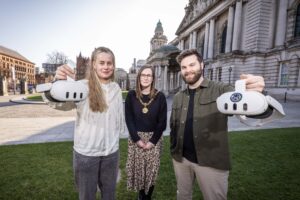A new report highlights the enormous streamlining potential of artificial intelligence and automation, while pressure for safeguarding and robust regulations increases.
According to Social Market Foundation, the UK public sector could reduce human-worked hours by up to 4,300 years by embracing AI and machine learning in the Department for Work & Pensions and HM Revenue & Customs alone.
In the Blink of an AI: Clearing the backlog in UK public services emphasises the benefits of automation within the stretch national and regional government estate. In total, more than 8million hours could be saved at two of Downing Street’s biggest public-facing departments. This would be achieved by deflecting, automating and streamlining thousands of daily calls, appointments and caseloads.
GP practices could also stand to gain significantly from AI, with an estimated three-quarter reduction in waiting times (73%), or half (47%) during peak times. Several practices have already begun trialling artificial intelligence-powered triage systems, with impressive results. Scaling this up could reduce expenditure by £345million each year and help to cut non-attendance rates.
Elsewhere in the public sector, the DVLA currently takes more than 90 days or more to process the 20% of driving license applications that require a medical review, which require a combined 200,000 decisions. AI could shorten this process, with technology such as Optical Character Recognition particularly useful.
Risk aversion among civil service staff, issues expanding pilot schemes, and a lack of skills were identified as potential obstacles. In a bid to overcome these, the SMF has recommended the Department for Science, Innovation and Technology to create a ‘one-stop-shop’ for all public sector AI and automation projects and needs.
‘Public services in the UK are creaking under increasing demand and, for far too many people, failing to deliver,’ said Sam Robinson, senior Researcher at the Social Market Foundation. ‘It doesn’t have to be this way. There are more opportunities than ever to streamline public services and give the public back thousands of years of their time. The technology is already here; government now needs to be bold enough to use it.’
More digital business:
Half of Scottish local authorities have plans for assistive tech telecare
CCS looks to private companies for guidance on £4.2bn transport technology spend
Image: Bartosz Kwitkowski via Unsplash


















Leave a Reply